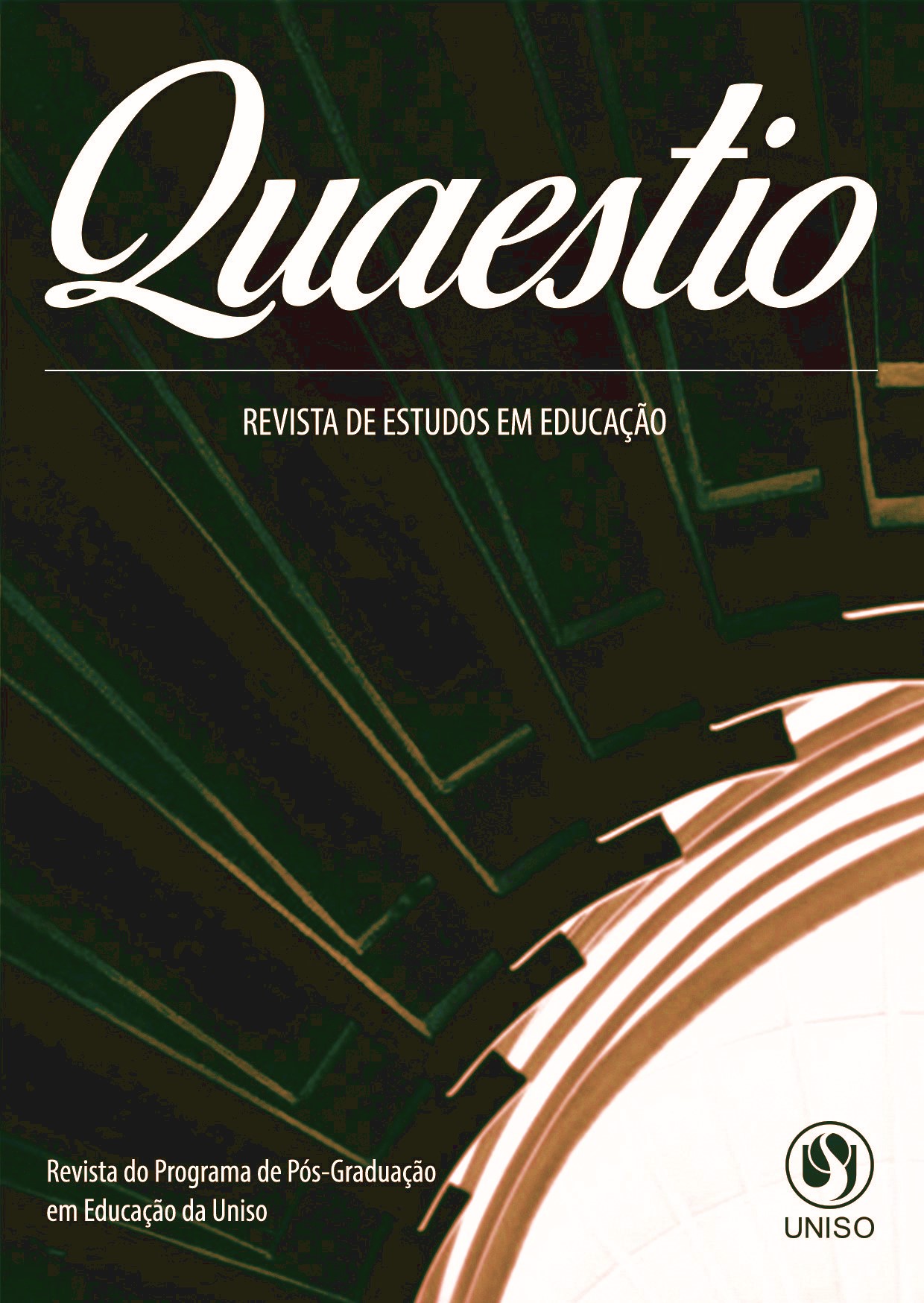Teaching and learning
a love relationship
DOI:
https://doi.org/10.22483/2177-5796.2022v24id3887Keywords:
teaching, learning, love.Abstract
As a professor of subjects related to didactics and teaching in a teaching degree (licenciatura) course of study, I consider the problem of learning a constant challenge. In the face of so many theories related to teaching and learning, the question that arises concerns the place of love in this process. The aim of this text is to relate teaching and learning, showing the meaning of love between the one who teaches and the one who learns. To examine this relationship, the route chosen results from a bibliographic review regarding didactic and neuroscientific aspects that establish a connection between body, emotion, and brain. Regarding love, in particular, the reference is the philosopher Max Scheler. One perceives that the act of teaching is an art of know-how that is not mere technique. On the contrary, it involves wide-ranging, philosophical and political activity. Learning results from a complexity involving the body/mind relationship, with drivers that are not only external, such as the senses, but also internal, such as neural synapses. The attraction of knowing arises through love, with the teacher as “model”.
Downloads
References
ANTIGO TESTAMENTO. In: A Bíblia Sagrada, Antigo e Novo Testamento. São Paulo: Sociedade Bíblica do Brasil, 1993.
CAMBI, Franco. História da pedagogia. São Paulo: Editora UNESP, 1999.
COMÉNIO, João Amós. Didática magna: tratado de arte universal de ensinar tudo a todos. 3. ed. Lisboa: Fundação Calouste Gulbenkian, 1957.
CURY, Augusto Jorge. Inteligência multifocal. São Paulo: Cultrix, 2006.
DAMÁSIO, Antônio. O mistério da consciência: do corpo e das emoções ao conhecimento de si. 2. ed. São Paulo: Companhia das Letras, 2015.
DICIONÁRIO internacional de teologia do novo testamento. São Paulo: Sociedade Religiosa Edições Nova vida, 1983.
GARDNER, Howard. O verdadeiro, o belo e o bom. Rio de Janeiro: Objetiva, 1999.
GOLEMAN, Daniel. Inteligência emocional. 22. ed. Rio de Janeiro: Objetiva, 1995.
GOLEMAN, Daniel. Inteligência social. Rio de Janeiro: Elsevier, 2006.
KIEL, Fred; LENNICK, Doug. Inteligência moral. Rio de Janeiro: Elsevier, 2005.
LIBÂNIO, José Carlos. Didática. 28. ed. São Paulo: Cortez, 2008.
RODRIGO, Maria Lídia. Platão e o debate educativo na Grécia clássica. Campinas: Armazém do Ipê, 2014.
SCHELER, Max. Modelos e líderes. Curitiba: Champagnat,1998.
SCHELER, Max. Ordo amoris. Covilhã: Lusosofia press, 2012.
SACRISTÁN, J. Gimeno; GÓMEZ, A. I. Pérez. Compreender e transformar o ensino. 4. ed. Porto Alegre: Artmed, 1998.
TORRALBA, Francesc. Inteligência espiritual. Petrópolis: Vozes, 2012.
WOLFE. Patrícia. Compreende o funcionamento do cérebro e a sua importância no processo da aprendizagem. Porto: Porto Editora, 2004.
Downloads
Published
How to Cite
Issue
Section
License
Copyright (c) 2022 Almiro Schulz

This work is licensed under a Creative Commons Attribution-NonCommercial 4.0 International License.
Esta licença permite que outros remixem, adaptem e criem a partir do artigo para fins não comerciais, desde que atribuam ao(s) autor(es) o devido crédito e que licenciem as novas criações sob termos idênticos.
Os artigos publicados são de total e exclusiva responsabilidade dos autores, que mantêm os direitos autorais e atribuem o direito da primeira publicação para a Quaestio: Revista de Estudos em Educação do Programa de Pós-Graduação em Educação da Universidade de Sorocaba.
Outros acordos contratuais podem ser feitos pelos autores, para posterior distribuição da versão do artigo (por exemplo em páginas institucionais ou pessoais, ou em livro), explicitando que o trabalho foi publicado nesta revista .

















